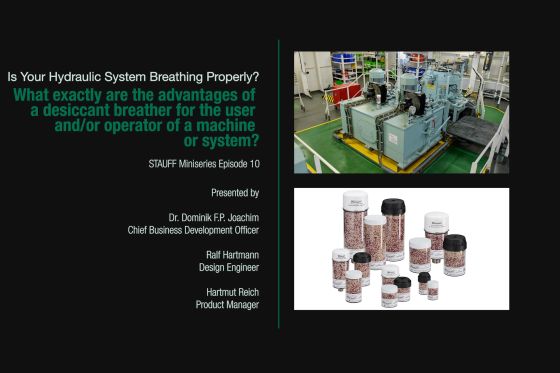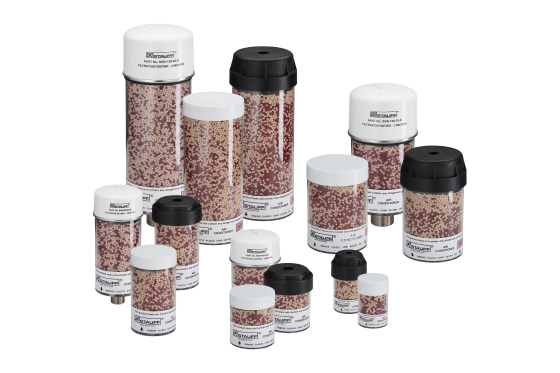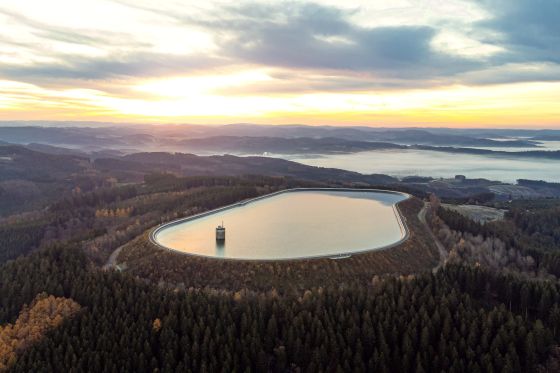What are the advantages of a dehumidifier for the user and/or operator of a machine or plant?
Episode 10 of the STAUFF Miniseries "Professional tools should be handy to ensure accurate and error-free installation"
The experts at STAUFF see a clear advantage for users who rely on air breather dryers. Those who omit this inconspicuous component have to expect increased maintenance work and risk damaging their hydraulic system. We show you the advantages of proper reservoir desiccation:
Did you know: You can turn on subtitles by clicking the CC button at the bottom of the video.
Watch this and all other episodes of this STAUFF Minseries on Youtube instead.
So why do I actually need an air breather dryer in a hydraulic system?
Let’s have a look at the worst case scenario. Imagine a hydraulic system with a reservoir that is vented to compensate for the inevitable volume fluctuations. But there is no breather with desiccant module installed.
Every time the volume in the tank reduces – so with each “breath” – more or less moist air gets into the tank and therefore also comes into contact with the hydraulic fluid. That has several damaging effects:
- The inside of the reservoir can corrode.
- The released rust particles then contaminate the oil.
- Contaminated oil in turn damages the components in the system (pumps, valves, ...).
- The hydraulic fluid ages prematurely because the water promotes the growth of, for example, mould and microbes, which alter the characteristics of the oil.
- Water in the oil can result in the elastomers (seals) swelling, which causes leaks.
- Under pressure and at higher temperatures, the water in the tank evaporates and causes gas bubbles in the hydraulic medium. This puts the correct function of the hydraulic system at risk.
- Water ingress is particularly critical when it comes to biodegradable hydraulic oil, as its service life is affected by this more severely than that of mineral-oil based media.
The result: The hydraulic oil has to be replaced earlier than planned – at substantial cost. If the prematurely aged oil is used for too long, it causes substantial damage to the system.
Small part – big effect
Do you still have doubts about using a continuous reservoir dessication device? Probably not. It should be clear by now that the negative consequences of omitting a desiccant air breather are numerous and severe.
To put a positive spin on it: For the reasons listed above, the issue of reservoir desiccation should be part of any filtration solution – in stationary and in mobile hydraulics. Unless, of course, you can be completely certain that only absolutely dry air will enter the reservoir. In this case, an air breather is sufficient.
You have not yet addressed reservoir desiccation? No problem! STAUFF air breather dryers are easy to retrofit!
Do you already use air breathers dryers in hydraulic systems?
Then share your experiences and leave a comment below this post.

Newsletter Subscription
Receive automatic e-mail notifications about new posts on the STAUFF Blog








